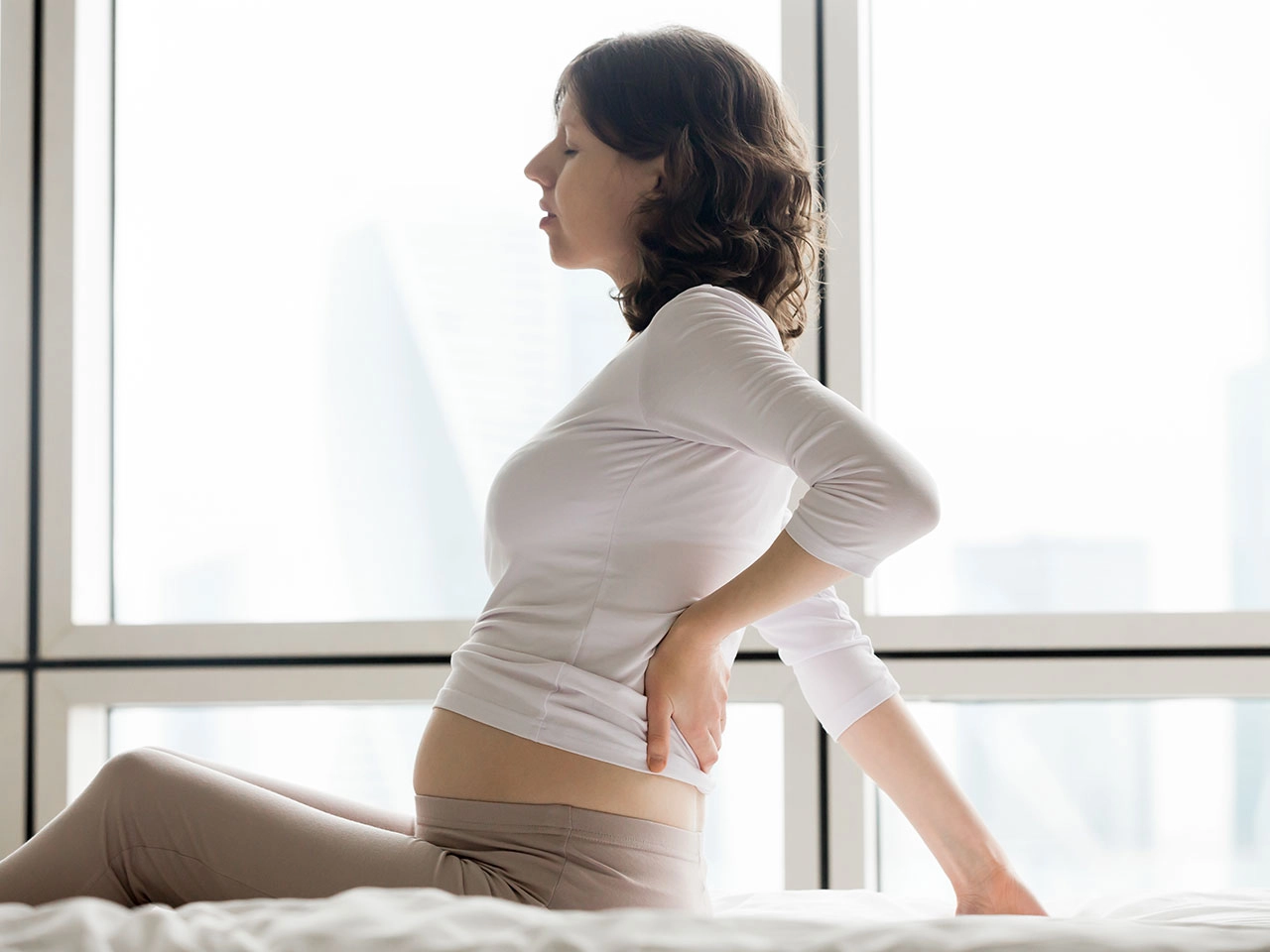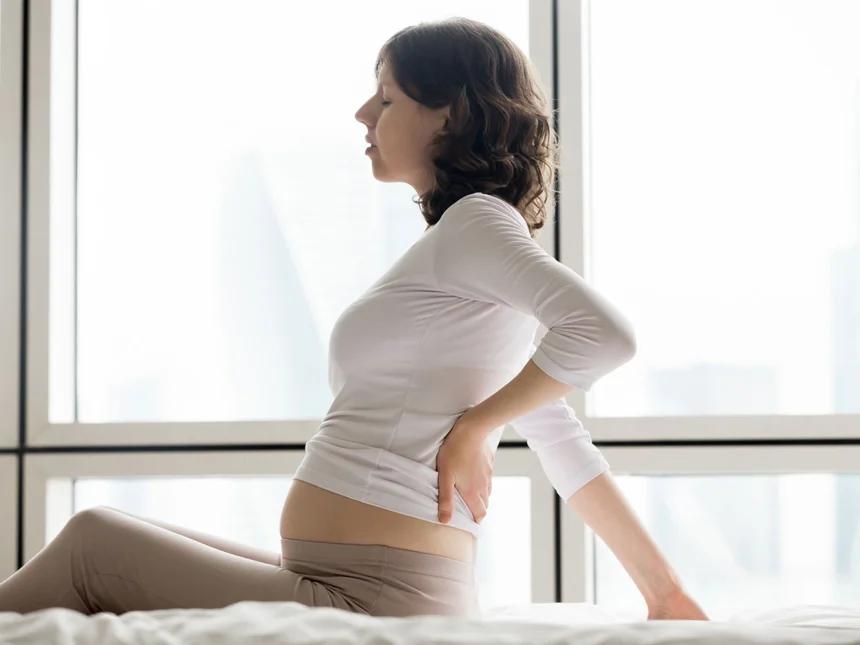When you are expecting, it is common to experience some level of pain in different body parts throughout the pregnancy stages. Hip pain is also related to pregnancy and can affect a number of women at different points. It is most likely to occur during second and third trimesters, but in some cases, hip pain can also start in first trimester as well. Learn more about the the other symptoms that are common in first trimester here.
How to tell it is hip pain?
If you feel cramping in the lower half of your body during pregnancy, it can be difficult to tell, where exactly is the origin of the pain. Some women may not be able to differentiate between back ache, pelvic pain and hip pain. It may be helpful to know the locations of hips and pelvis to point out the problem.
Pelvis is a bony framework located at the end of your spine, in the lower half of your body. Hips are located on both the sides of this pelvic bone, joining your thighs to pelvis. Sometimes if you feel sore in the hip joints or pelvis, it may radiate up towards your back. Different women experience hip pain differently. For some, it may just be a mild, but constant pain and to others, it may be sudden and intense. Also, hip pain may be a combination of all these in some women at different points during pregnancy.

What causes hip pain?
- Hip pain in your first trimester is usually because of pregnancy itself in most cases, but sometimes there could be an underlying condition, which your doctor would be able to pinpoint.
- Bad posture may contribute to hip pain and it can get severe as your belly grows during second and third trimester. It is important to correct your posture from early pregnancy onwards, to prevent hip pain and maintain proper body balance.
- Women who are overweight at the time of their pregnancy are more prone to hip pain.
- Women with pre-existing hip or back aches are most likely to develop hip pain during pregnancy.
Hip pain in the first trimester of pregnancy is generally common and you can get relief with some tips, but if it gets unbearable and does not seem to decrease when you relax or change positions, you should consider discussing the issue with your healthcare provider and get appropriate treatment.








